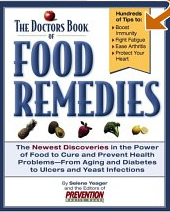Herbal Anti-Inflammatories: Holistic Treatments

Please note that the information on the "Natural Antibiotics" page is relevant for human holistic applications. Please discuss with your holistic vet which food items, if any, are safe and effective for pets.
The information is given for reference only - please consult a healthcare practitioner before incorporating any alternative treatment protocols into your treatment plan... Disclaimer.
Herbs have long histories of usage for conditions that involve inflammation -- most commonly marked by redness, pain and swelling. Muscle and joint injuries should always be treated with RICE (rest, ice, compression and elevation) at the time of the injury.
- • Consult with a health practitioner if symptoms do not subside within a few days.
- • Seek IMMEDIATE medical attention if inflammation is accompanied by high fever or if a severe injury (such as fracture or torn ligament) is suspected
- • Note: The below anti-inflammatories have not been evaluated for animal use. For this reason, please consult with a vet -- preferably with one who has experience in alternative treatments.
Arnica - to relieve soreness and swelling following an injury or surgery.
Antioxidant-rich Foods
The more colorful the produce, the richer it is in antioxidants. Keep your kitchen stocked with bright, colorful fruits and veggies like strawberries, spinach, carrots and broccoli. Blueberries have an oxygen radical absorption capacity value of 2,400 per 100 grams of antioxidant power and they are rich in anthocyanins, ellagic acid and phenolic acids. They help fight bacteria that can cause urinary tract infections, and blueberry extract may combat pain. Fresh and frozen (without added sugar) are comparable from a nutritional standpoint, but dried blueberries contain lower amounts of antioxidant anthocyanins.
Apples: Significantly lower or normalize cholesterol and triglycerides. Contain anti-bacterial, anti-viral, and anti-inflammatory agents.
Green Tea
Green tea is valued as a wrinkle reverser, inhibiting inflammation and sun damage. An article published in the Archives of Dermatology concurs that green tea may, indeed, ward off skin cancer and signs of aging. Researchers at Case Western University in Cleveland maintain that the secret to green tea's skin-protective properties are its high levels of polyphenols and catechins - powerful antioxidants shown to function as anti-inflammatory and anti-cancer agents.
Tip: After making a cup of tea, save the tea bags in a closed glass container in your refrigerator and use them as cleansing pads for your face the next morning. They are perfect for exfoliating the skin and green tea has anti-inflammatory properties.
Available at your stores -- please make sure that you get the organic, higher-quality variety.
Specific Anti-Inflammatory Herbs
Aloe Vera
Aloe Vera has powerful anti-inflammatory, burn healing and wound & scar-healing properties based on its more than 200 biologically active agents, including Vitamin E, B and C - and the mineral zinc.
When used as part of a daily skin care regimen, aloe vera helps to keep skin supple by transporting oxygen to skin and removing dead cells. Studies consistently demonstrate that Aloe Vera is effective in soothing psoriasis, eczema and seborrhea.
Turmeric
In the Ayurvedic tradition, Turmeric is known for its anti-oxidant, anti-inflammatory and skin beautifying properties.
- • Helps support skin, blood and liver functions
- • 5 times more powerful antioxidant than Vitamin E
- • Studies show Turmeric outperforms even cortisone
- • Potent antibiotic, anti-viral, anti-microbe
Ginger
Long considered an essential item for healers as well as cooks throughout Asia, this well-known spice is employed as a remedy for arthritis, bursitis and similar ailments.
Note: Ginger can decrease blood clotting and should not be taken by people with bleeding disorders.
Boswellia
Taken from the frankincense tree of Three Wise Men fame, this ancient remedy has been found to shrink the inflamed joint tissue that marks arthritis.
Additional Natural Remedies
Bromelain
This pineapple-based enzyme helps reduce inflammatory reactions resulting from injuries and arthritis - and serves also as a digestive aid. To fight inflammation, take on an empty stomach.
Willow Bark
Aspirin is a synthetic form of salicylic acid, willow bark's primary component. Unlike aspirin, willow bark doesn't cause stomach upset when used for headaches, toothaches and arthritic aches.
Comprehensive Anti-Inflammatory Foods
Antibacterial / Antiviral / Anti-inflammatory / Antibiotics / Antiseptic / Antioxident / Free-Radicals Protection:
Cod Liver Oil ... Natural Antibiotics ... Apples ... Apple Cider Vinegar ... Bartlett Pears ... Blueberries ... Cranberries ... Collard Greens ... Health Benefits of Flax Seeds ... Garlic ... Fennel Bulbs ... Green Beans ... Kale ... Kiwifruits ... Lemons & Limes ... Raw Honey ... Vitamin E ... Mustard Greens ... Olive Oil ... Olives ... Onions ... Oranges ... Papaya ... Parsley ... Pineapple ... Plums ... Prunes ... Raspberries ... Sea Vegetables ... Sweet Potatoes ... Spinach ... Swiss Chard ... Strawberries (organic only) ... Tomatoes ... Yogurt